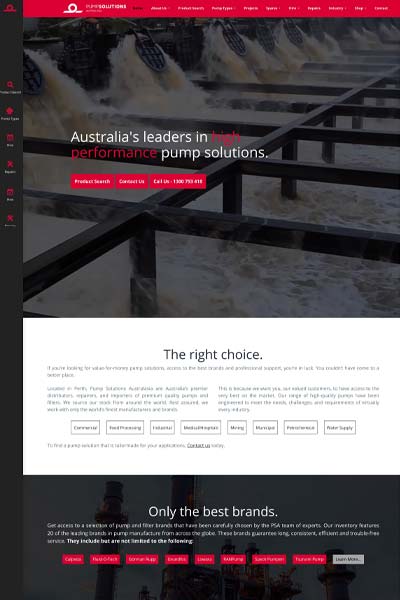Should Your Business Be Doing Pay Per Click Advertising (PPC)?
- Are you promoting your business, products or services online?
- Do you customers search for businesses like yours online?
- Do your customers regularly use one or more social media platforms?
- Do your competitors advertise online?
- Do you have your own website which converts site visitors to sales or hot leads?
- Is your product or service easy for people to understand?
- Can you justify a potential ROI on your advertising expenditure?
- Is your business free of regulations that forbid online advertising?
- Do you understand why potential customers would need your product or service?
If your answer to a few of the above was “yes” then chances are you should at least try doing some pay per click advertising.
PPC Advertising Comes in Many Shapes, Sizes & Costs
PPC is Google Ads Correct?
When many people think of PPC ads they think of Google Adwords (now known as Google Ads).
Google Ads is by far the most prevalent form of Pay Per Click advertising on the web. When you search in your browser in a search engine such as Google you are shown a page of results commonly with a few promoted links at the top of the page.
These are paid ads and clicking on one of the ads will immediately cost the company that runs the ad an amount of money. The amount of money that it costs will depend upon the competitiveness of the keyword phrase you search for, the quality of the content on the landing page of the advertiser plus various other factors.
Obviously a search term such as “mobile phone plans” will be expensive for the advertiser if they want to occupy a position at the top of the first page of Google search results. No doubt, the advertisers that occupy those positions have done their ROI analysis and believe that the cost is justified.
What Are the Alternatives to Google Ads (GAds)?
Google Ads are commonly good for targeting people who are interested in your product or service because they have already entered a specific search term in Google that matches your ads. Google Ads can be more expensive (this is a generalisation).
If you are already advertising on Google or, for some reason, you do not want to advertise on Google then there are many alternatives available to you, as follows;-
- Facebook Ads. Commonly cost less per click than GAds. Facebook allows for very accurate demographic and geographic data, however, those that see your ad may not be searching for your product.
- Microsoft Ads. Very similar to Google ads. Displayed in the Bing search engine. Bing is commonly used by older people who are not confident changing their browser to Chrome or on corporate PCs with strict user software download restrictions.
- LinkedIn Ads. Similar to Facebook Ads, however, targeted at business. A better place for B to B advertising or ads targeted at business professionals.
- Twitter Ads. Once again this platform allows for demographic and keyword targeting for your ads. This may surprise many but Twitter is quite strong in the B to B advertising space. It is not just all about celebrities.
- Instagram Ads. Instagram is owned by Facebook and you can set up your ads via the Facebook Ads Manager platform. Instagram ads are great for B to C advertising.
- YouTube Ads. These are more commonly Pay Per View (PPV) as opposed to PPC. They can be set up with a call to action such as a button though and if that CTA is clicked then you will be charged the same as when someone watches all of your ad in PPV.
There are obviously more social networks with PPC ads although we will not go into each of them here…
What Makes a Good PPC Ad?
At the end of the day you should always make decisions that you clearly believe are best for your business, yourself, your team and your customers.
There is, of course, no one size fits all for PPC ads and what suits a B to B market may not suit a B to C market.
A few things rarely change though and we have listed some of these below;-
- Do your research first. Who are your customers, what specifically are they looking for, what online platforms do they hang out in, where in the buying cycle do you want to target them and what will encourage them to click your ad?
- If you are sending people who click through to a landing page where you will convert them to customers or hot leads then make sure that landing page is closely tied to the text or images on your advertisement. Never make anyone search for what they have decided they need.
- Be clear, concise and simple with your advertising messages. Less is more and, unless you are selling a very technical product, avoid jargon wherever possible.
- Do not lie in your advertising. People will generally see through your deceit and it will end up bad for you. A bad review can kill many more sales than a good ad will generate.
- Don’t scrimp and save a few bucks and certainly do not do it yourself if you have no experience in advertising.
- Plan your audiences, your campaigns, your ad groups, your ads and your budgets.
- Measure your results and make changes regularly based upon your results. This can be the toughest thing to do accurately so talk to an expert if you are unsure.
- Remember your competitors are advertising as well. They may be modifying budgets for various products or services and, if you are not monitoring your ad campaigns on a regular basis, then you may be left behind.
- If your ads are working (generating leads, making sales etc) then don’t be afraid to invest more in your campaigns to earn more sales but never go beyond your ability to deliver.
- When you are lighting a fire it is never “set and forget” and neither are ad campaigns.
- Wherever break down your ad campaigns to take advantage of different potential audiences. Measure the performance of different ads and ad groups and do more of what works and less of what does not.
- Don’t always trust the recommendations of the advertising network. They are out to make money just like you and sometimes their needs and yours are not complimentary or they may not understand your audience, products or services as well as you do and hence make poor suggestions.
When you are lighting a fire it is never “set and forget” and neither are your ad campaigns. If you do not have the time to manage them then contract someone to do it for you.
Recent PPC Projects
Recent Articles
Considering a New Website? Should You Use a Web Designer or a Web Developer?

Money – and the Motivators

WordPress 5.9 brings huge changes on January 25 but do you need to worry?

Effective Problem Solving Leads to Solutions

Is WordPress v5.9 the Dawn of a New Era?

Strategic Planning Framework – Part 4

What Our Customers Are Saying
Stephen Gaebler is a strong, clear, big-picture thinker. He is helping to create the future of work and of free enterprise. I've worked with him on several formal and informal projects over the past few years, and he has never failed to enlarge my perspective, challenge my blind spots, and clarify my vision.


